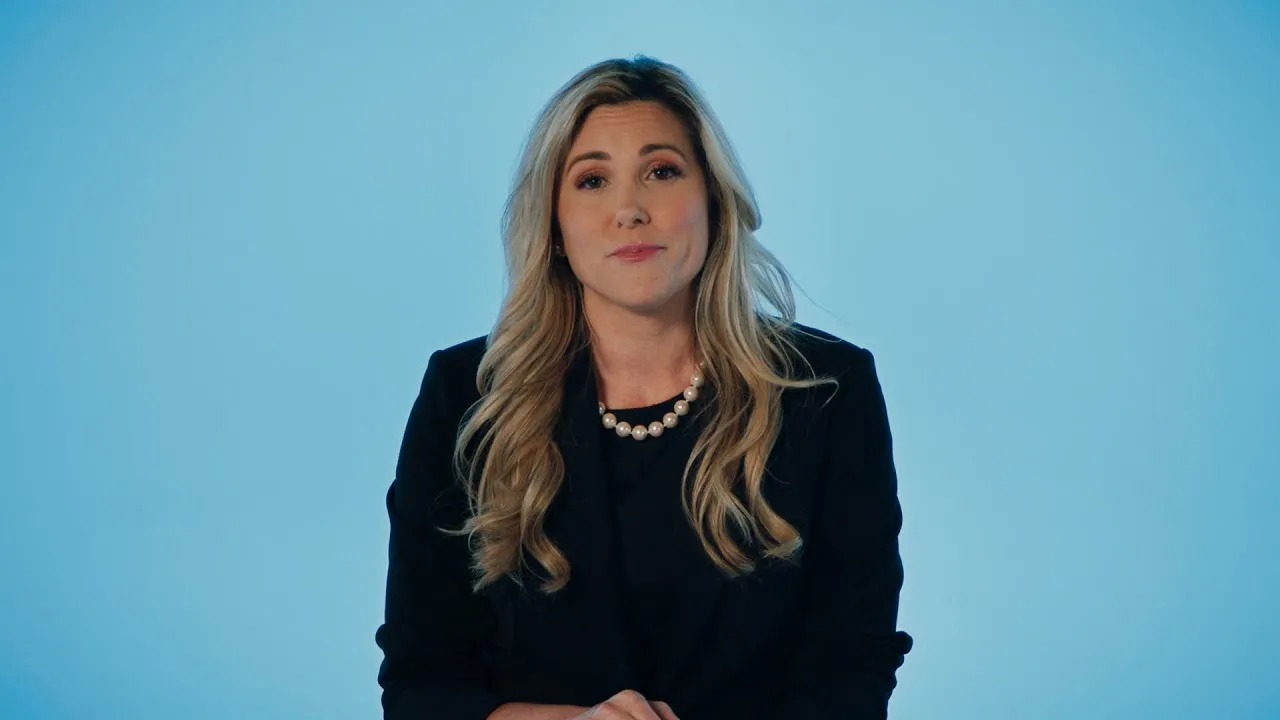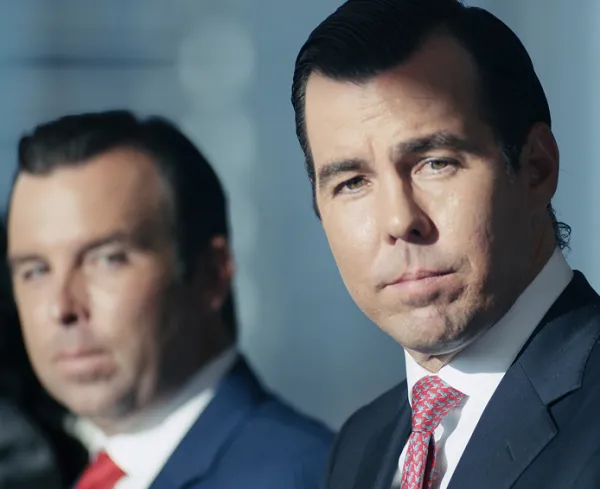
We know trucking accidents.
We've helped thousands of trucking accident victims get the compensation they deserve.
Start Your ClaimThe attorney shown above may not be licensed in your state. To find an attorney licensed in your area, please visit our attorney page.

The attorney shown above may not be licensed in your state. To find an attorney licensed in your area, please visit our attorney page.
Meet Our Trucking Accident Attorneys
From investigation to resolution, our truck accident attorneys handle every detail of your case. You focus on recovery. We’ll take care of the rest.
The attorneys shown in these photos may not be licensed in your state. To find an attorney licensed in your area, please visit our attorney page.
Trucking Accident Cases Require Specialized Legal Firepower
Trucking Accidents Are Not Like Other Crashes
Strong from the Start
National Experience in Trucking Cases
A Full Team Working Behind the Scenes
The Name Insurance Companies Respect
It’s Free to Get Started
Our Results
Results may vary depending on your particular facts and legal circumstances.
Truck Accident Types
Delivery Trucks
Cement Trucks
In Their Words
Based on select nationwide reviews.
Trucking accident claims need three things.
Injury or damages
Proof of negligence
Determination of responsibility
What's a truck accident case worth?
Watch Morgan & Morgan attorneys explain how case value is calculated.

The attorneys shown in this video may not be licensed in your state. To find an attorney licensed in your area, please visit our attorney page.
8 Steps to Take After a Trucking Accident
From ensuring your safety at the scene to protecting your rights, learn what to do after a truck accident.
Fighting For the People
Backed by America’s Largest Injury Law Firm.
$25 Billion
Recovered for clients
nationwide700,000+
Clients and families
served1,000+
Attorneys across
the country1
Click may change your life

The attorney featured above is licensed in Florida. For a full list of attorneys in your state please visit our attorney page.
Results may vary depending on your particular facts and legal circumstances.
Injury Types
Traumatic Brain Injuries (TBI)
Spinal Cord Injuries
Fractures and Broken Bones
Whiplash and Neck Injuries
Internal Injuries
Lacerations and Burns
Learn More
Injured and not sure what to do next?
We'll guide you through everything you need to know.
Get answers to commonly asked questions about our legal services and learn how we may assist you with your case.
How do I know if I have a truck accident claim?
Every case is different. But in all personal injury claims, there are a few elements that we look at to see if you might have a case. We check to see if:
- There were damages. Personal injury lawsuits are filed to recover “damages.” These include costs like medical expenses, lost wages, and pain and suffering. An injury must have significant associated costs to qualify for a lawsuit, which vary by state.
- Someone else was at fault. To get compensation from someone else’s insurance company, they must have acted negligently in a way that caused or contributed to your injuries.
- There’s enough insurance coverage. Personal injury lawsuits are usually filed against insurance companies, not individuals. Those responsible must have enough insurance coverage to cover the injured person’s medical expenses or to fully compensate them for their injuries.
Not sure if you have a case? Get in touch. We're here to help.
What should I do immediately after a truck accident?
If you’re wondering what to do after being hit by a semi-truck, your priority should be safety and seeking medical attention.
If possible, move your vehicle out of traffic and to a safe location. Then, call 911. Report the accident and request medical assistance for anyone injured. Even if you feel fine, some injuries may not be immediately apparent. A medical evaluation helps document your condition for your claim. Having professionals tend to your injuries also creates a medical record that can be used as evidence in court.
Collect information from the truck driver, including their name, contact details, insurance information, trucking company name, and license plate number.
While a photograph of a license plate can help in many auto accidents, commercial truck accidents can be different. Having the license plate number of a truck won’t always suffice when attempting to collect driver information, as many trucks are often leased through a third party. As a better solution, take a photo of the diver’s door with the U.S. Department of Transportation number (US DOT number). This identifier will enable your legal team to get the driver’s name, address, insurance information, and trucking company.
Take photos of the accident scene, vehicle damage, road conditions, and any visible injuries. This evidence can be helpful for your case. You can also get contact information from any witnesses who saw the accident happen.
Avoid making statements that could be interpreted as admitting fault, such as “I’m sorry” or “I didn’t see you,” as they could be used against you later.
As the final step, contact Morgan & Morgan. Our team can provide you with a free case evaluation so you can learn more about your legal options and take your first steps toward moving forward with your life.
How long after a truck accident can I file a claim?
There are time limits set by law for how long personal injury victims have to file a lawsuit. This is known as the statute of limitations. The statute of limitations for filing a truck accident lawsuit varies by state, but generally, you have between one to four years from the date of the accident to file a claim. It’s essential to consult with a lawyer promptly, as missing the deadline can prevent you from recovering any compensation.
How long does it take to resolve a truck accident claim?
The statute of limitations is a legally defined time limit within which someone must file a lawsuit, and this timeframe varies depending on the type of case and state.
For truck accident claims, the statute of limitations generally requires filing a claim within a certain period after the accident. Filing within this period is essential to retain your right to pursue compensation.
It’s advisable to consult with an attorney as soon as possible after the incident, as gathering evidence and building a strong case can take time. Your attorney can also help ensure all documents are filed accurately and on time.
Why should I hire Morgan & Morgan?
At Morgan & Morgan, our team of experienced commercial truck attorneys has successfully represented countless clients in similar situations, securing millions in compensation. As the largest personal injury law firm in the country with over 1,000 lawyers nationwide, we have the resources, knowledge, and dedication to fight for your rights.
We work on a contingency fee basis, meaning you won’t have to pay unless we win your case. Morgan & Morgan believes justice should be accessible to all, so our motto is the Fee Is Free™—you only pay if we win.
How much does it cost to hire Morgan & Morgan?
At Morgan & Morgan, we work on a contingency fee structure, which means you don't pay any upfront fees. That’s right—the Fee Is Free™, and you only pay if we win. Your lawyer receives a percentage of the compensation you recover from your case, and only if you win. Here’s a breakdown of how it usually works:
Contingency Fee Arrangement
- No Win, No Fee: With a contingency fee, the lawyer only gets paid if you recover compensation, either through a settlement or a court verdict.
Free Consultations
- You can call Morgan & Morgan anytime for a free case evaluation to learn more about your legal options with no obligation to work with us.
- From there, Morgan & Morgan’s truck accident lawyers offer a free initial consultation, where they evaluate your case, explain the legal process, and discuss the fee structure.
What Can Affect the Final Cost?
Several factors influence the total cost of hiring a truck accident lawyer, including:
- Case Complexity: Truck accidents can involve multiple liable parties (e.g., trucking company, driver, manufacturer), which may require more time and resources to investigate.
- Going to Trial vs. Settlement: Cases that go to trial generally require more preparation, court filings, and attorney time, which may result in a higher percentage fee.
- Lawyer’s Experience and Reputation: More experienced or well-known attorneys may charge higher contingency fees due to their track record of success and expertise in handling complex cases.
Advantages of a Contingency Fee
- No Financial Risk: The contingency fee arrangement allows injured individuals to pursue compensation without worrying about upfront legal costs.
- Incentive for Success: Since the lawyer’s fee depends on the outcome, they are motivated to secure the highest possible settlement or court award for you.
What sort of compensation can I receive after a truck accident?
Victims of truck accidents may be entitled to various types of compensation, including:
- Medical Expenses: Coverage for current and future medical bills, including hospital stays, surgeries, medications, and physical therapy.
- Lost Wages: Compensation for income lost due to injury and any future earning potential if the injury impacts your ability to work.
- Pain and Suffering: Monetary compensation for physical pain, emotional distress, and diminished quality of life.
- Property Damage: Reimbursement for the repair or replacement of your vehicle and other personal property damaged in the accident.
- Loss of Consortium: Compensation for the impact of the injury on your relationship with your spouse or family.
- Punitive Damages: In cases of extreme negligence or recklessness, the court may award punitive damages to punish the wrongdoer.
Once you retain truck accident legal representation, your lawyer can evaluate the types of damages that pertain to your case and what fair compensation may look like. Morgan & Morgan offers free consultations for truck accident cases so you can learn more about your legal options after a truck accident injury.
Do I have to pay for a consultation?
No. Consultations at Morgan & Morgan are completely free. We believe everyone deserves access to legal advice, regardless of their financial situation.
Hiring one of our truck crash lawyers is easy, and you can get started in minutes with a free case evaluation on our site or by phone.
Who will be on my case team?
When you hire Morgan & Morgan, you don’t just hire a lawyer—you hire the largest personal injury law firm in the country, with an army of over 1,000 lawyers and offices in all 50 states and Washington, D.C.
Your case will be handled by a dedicated team of professionals, including personal injury lawyers, paralegals, and support staff. You will be assigned a care team that includes a primary attorney who will oversee your case and ensure you receive personalized attention throughout the process.
Additionally, Morgan & Morgan has its own in-house accident investigation team available in select states, giving us a critical advantage in truck accident cases. Trucking companies deploy rapid response teams to accident scenes immediately—often arriving before police—to gather evidence that protects their drivers. Our dedicated investigators counter this tactic by conducting thorough, independent investigations and preserving crucial evidence that might otherwise be lost or controlled by the trucking company.
Our investigators document physical evidence, interview witnesses while memories are fresh, and collect data from the truck's electronic control module before it can be altered. This rapid, professional response helps build stronger cases and often leads to better settlements for our clients.
Having this expertise in-house allows us to deploy investigators 24/7 without relying on third-party contractors who may have conflicts of interest or divided loyalties. It’s another way Morgan & Morgan levels the playing field against powerful trucking companies.
When do I meet with my truck accident lawyer?
After your initial consultation, your care team will schedule regular meetings to discuss your case, provide updates, and prepare you for any upcoming proceedings. We are committed to maintaining open lines of communication and keeping you informed every step of the way.
These meetings can be handled in person, virtually, and by phone, depending on your case’s requirements and your ability to do so.
What’s the average settlement for a trucking accident claim?
The average settlement for a truck accident claim can vary widely depending on several factors, including the severity of injuries, the extent of property damage, and the circumstances surrounding the accident.
The most significant factor in determining a settlement amount is the severity of your injuries. Cases involving minor injuries, such as whiplash or bruising, may result in smaller settlements, while severe injuries like spinal cord damage, traumatic brain injuries, or multiple fractures can lead to much more substantial settlements.
Your medical bills play a crucial role in calculating your settlement. This includes costs for emergency room visits, surgeries, hospital stays, physical therapy, and any ongoing or future medical care. The higher your medical expenses, the larger your settlement is likely to be.
How do you prove who is responsible in a truck accident case?
Fault in a truck accident is determined by examining evidence to establish which party’s negligence caused the accident. Key factors include:
- Police Reports: Official reports provide initial assessments of fault based on the responding officer’s observations.
- Eyewitness Testimonies: Statements from witnesses can provide insights into how the accident occurred.
- Accident Scene Analysis: Photos, video footage, and forensic analysis of skid marks or debris can help reconstruct the accident.
- Truck Driver Logs: These logs can reveal if the driver was in violation of hours-of-service regulations or fatigued.
- Vehicle Inspections: Maintenance records and vehicle inspections can uncover mechanical failures or improper maintenance.
- Black Box Data: Most trucks have data recorders that capture speed, braking, and other key details leading up to the crash.
Fault determination can be complex, often involving multiple parties, including the driver, trucking company, and even manufacturers. A commercial truck accident attorney can help you gather this evidence and create an argument in your favor.
What should I expect during the legal process of a truck accident claim?
The legal process of a truck accident claim can be complex, involving multiple parties and extensive investigation. It usually begins with an initial consultation with your lawyer. Morgan & Morgan’s truck accident attorneys offer a free consultation where they evaluate your case, explain your rights, and outline the legal process.
During this meeting, you’ll provide details about the accident, your injuries, and any potential evidence (police reports, photos, witness information). The lawyer will assess whether you have a viable case and discuss the potential for compensation.
Truck accident claims often require in-depth investigations, as multiple parties may be involved. Your attorney will gather evidence, which may include:
- Police reports and accident scene photos
- Driver’s logbooks (hours of service records)
- Vehicle maintenance records
- Truck’s black box data (to see speed, braking patterns, etc.)
- Surveillance footage, if available
- Witness statements
- Medical records documenting your injuries
Depending on the complexity of the case, your lawyer may work with accident reconstruction experts, medical experts, or trucking industry experts to establish liability.
Your lawyer will also work to identify all liable parties. Truck accidents can involve multiple potentially liable parties, such as the truck driver, the trucking company, the truck manufacturer, and even cargo loaders. Your attorney will work to establish who is responsible for the accident and file claims accordingly.
Once your attorney has gathered enough evidence, they will draft and send a demand letter to the insurance companies or at-fault parties, outlining the facts of the case, your injuries, and the compensation you are seeking.
If a fair settlement can’t be reached during negotiations, your attorney will file a formal lawsuit. This initiates the litigation phase and sets a timeline for the legal process.
Throughout the process, your attorney will negotiate with the insurance companies representing the driver, trucking company, or other responsible parties. Insurers may try to offer a lower settlement, but your attorney will fight for fair compensation for your medical bills, lost wages, pain and suffering, and other damages.
The vast majority of truck accident claims are settled out of court. If the insurance company offers a reasonable settlement, your lawyer will discuss it with you and advise whether to accept or continue negotiating.
If the case goes to court, both sides enter the discovery phase, where they exchange evidence, documents, and witness information. This phase often includes:
- Depositions (sworn statements taken from witnesses, the truck driver, and possibly you)
- Interrogatories (written questions exchanged between parties)
- Expert testimonies
Attorneys may file motions during this period to dismiss certain claims or suppress specific evidence.
If a settlement isn’t reached, your case will proceed to trial. During the trial, your attorney will present evidence, call witnesses, and make legal arguments to prove liability and damages. The defense (trucking company or driver’s lawyer) will also present their case. After both sides present their case, the judge or jury will decide who is liable and how much compensation should be awarded.
In many cases, a settlement is reached before the case goes to trial. Your attorney will review any settlement offers with you to ensure they cover all of your current and future needs.
If your case goes to trial, the jury or judge will issue a verdict on who is liable and the amount of damages. If you win the case, the liable parties must pay the awarded compensation.
The legal process of a truck accident claim involves consultation with an attorney, evidence gathering, negotiations, and possibly going to court. Each step is designed to ensure that you receive fair compensation for your injuries and damages. An experienced attorney will guide you through this process and advocate on your behalf.
Why are truck accidents more complicated than car accidents?
Truck accidents are more complex because they often involve multiple parties, including the truck driver, trucking company, vehicle manufacturers, and cargo loaders. Additionally, trucking companies are governed by federal regulations, such as those set by the Federal Motor Carrier Safety Administration (FMCSA), which adds another layer of legal considerations.
The severity of injuries and the higher stakes involved in compensation claims also contribute to the complexity. Big trucks can cause big damage—a lot more than the common small vehicle fender-bender.
A truck accident lawyer at Morgan & Morgan can guide you through the complex legal process so that all you need to worry about is recovering and moving forward with your life.
What are the most common causes of truck accidents?
Common causes of truck accidents include:
- Driver Fatigue: Truck drivers often face pressure to meet tight delivery schedules, leading to fatigue and decreased reaction times.
- Distracted Driving: Texting, eating, or using in-cab technology can distract drivers from the road.
- Speeding: Trucks require longer stopping distances, and speeding increases the risk of collisions.
- Improper Loading: Overloaded or improperly secured cargo can cause the truck to tip or lose control.
- Mechanical Failures: Faulty brakes, tires, or other mechanical issues can lead to accidents if not properly maintained.
- Driving Under the Influence: Alcohol or drug use impairs a driver’s ability to operate the vehicle safely.
Can I sue the trucking company if the driver was at fault?
Yes, you can often sue the trucking company if the driver was at fault for the accident. This is possible due to a legal principle called vicarious liability, which holds employers responsible for the actions of their employees while they are performing job-related duties. In the case of a truck accident, the trucking company may be held liable for the driver’s negligence or recklessness.
Vicarious Liability (Respondeat Superior)
Respondeat Superior is a legal doctrine that makes employers liable for the negligent actions of their employees, as long as the employee was acting within the scope of their employment when the accident occurred.
In a truck accident, if the driver was performing their job duties (e.g., delivering goods, following a company route), the trucking company can be held liable for the driver’s actions, even if the company itself wasn’t directly at fault.
Negligence of the Trucking Company
In some cases, the trucking company may also be directly at fault, which strengthens the case against them. Common reasons include:
- Negligent Hiring Practices: If the company hired an unqualified or unsafe driver (e.g., someone with a poor driving record or inadequate training), they could be liable for negligent hiring.
- Poor Training: If the company failed to provide adequate training for the driver, they could be held responsible.
- Improper Truck Maintenance: The trucking company is responsible for ensuring that its fleet is properly maintained. If a mechanical failure caused by poor maintenance contributed to the accident, the company can be sued.
- Violation of Hours-of-Service Regulations: Truck drivers are subject to federal regulations that limit how many hours they can drive without rest. If the trucking company encouraged or forced the driver to violate these rules, it may be held liable.
Independent Contractors vs. Employees
Sometimes, trucking companies argue that the driver is an independent contractor, not an employee, in an attempt to avoid liability. However, courts may still hold the company responsible depending on the level of control they had over the driver’s actions, such as setting routes and dictating work schedules.
Determining whether the driver was truly an independent contractor or an employee may involve investigating the terms of the driver’s employment and the company’s role in overseeing their work.
Other Liable Parties
In addition to the trucking company and driver, other parties may be liable for the accident, such as:
Truck Manufacturers: If a mechanical failure caused by a defect contributed to the accident, the truck’s manufacturer could be liable.
Cargo Loaders: If improperly loaded cargo led to the accident, the company responsible for loading the truck could also face liability.












